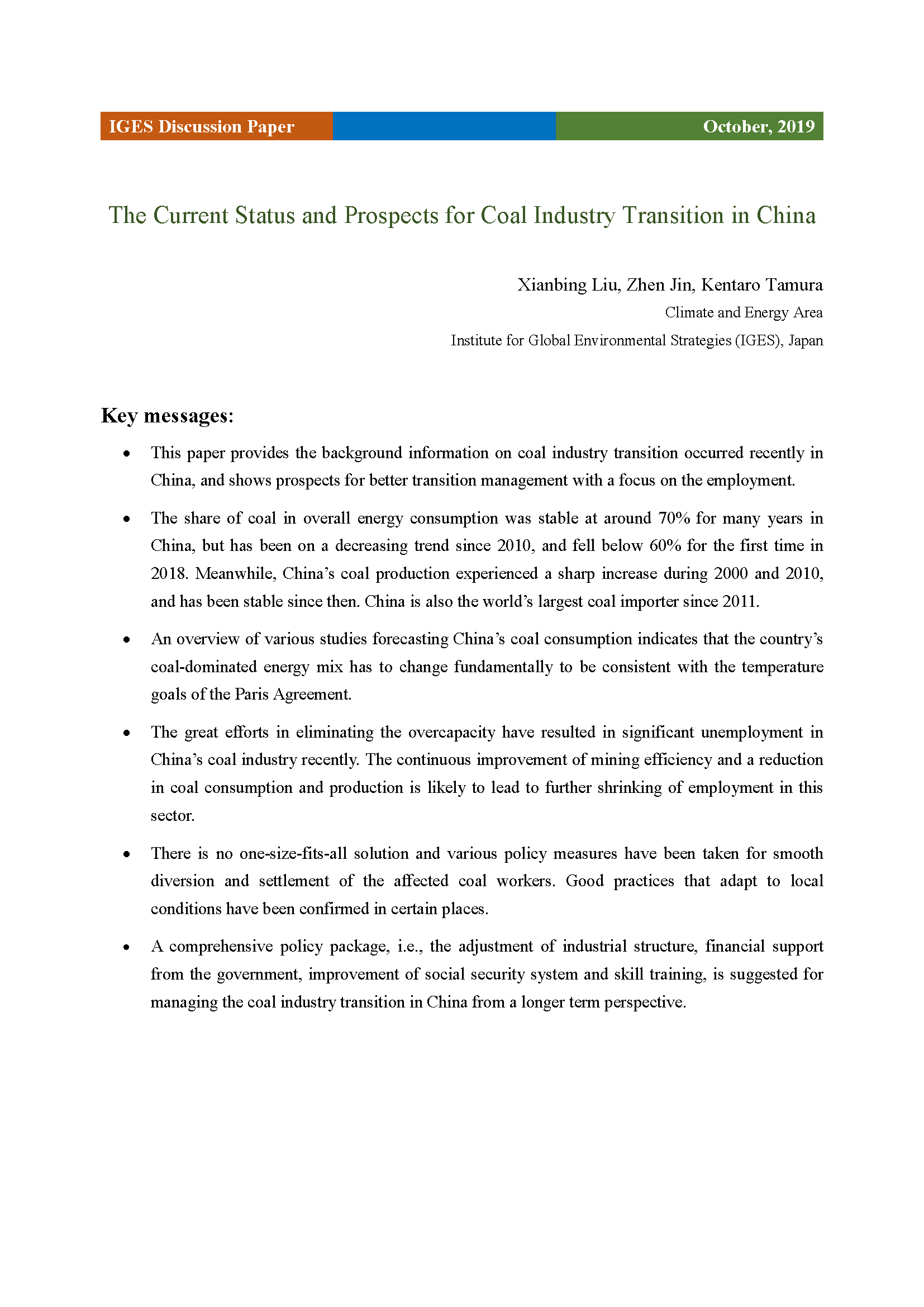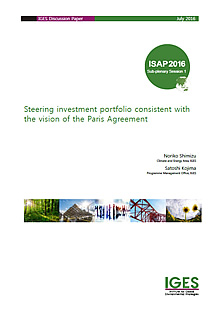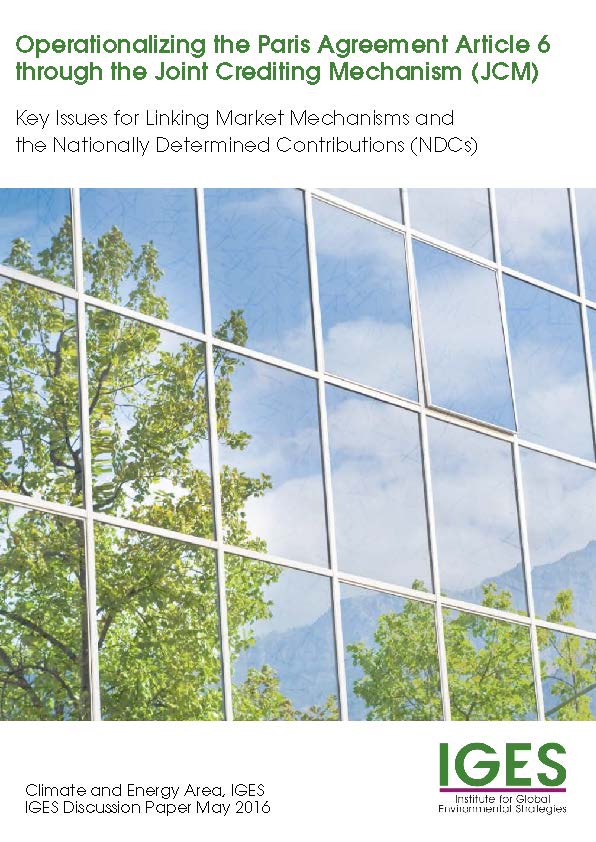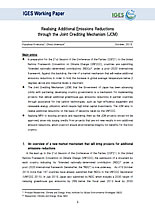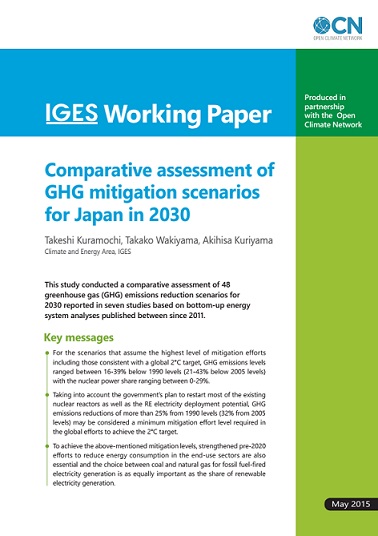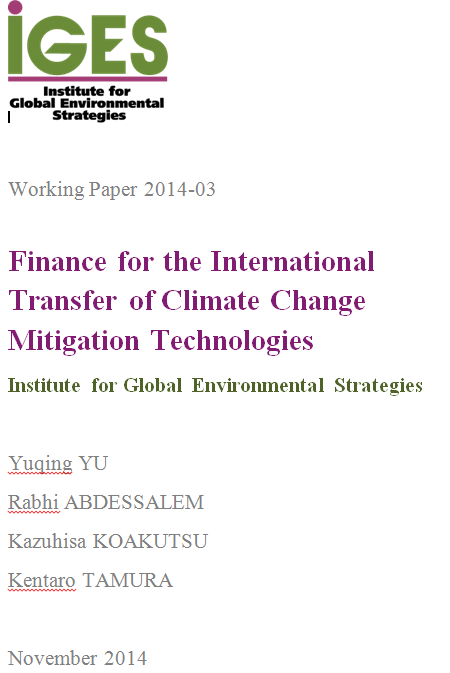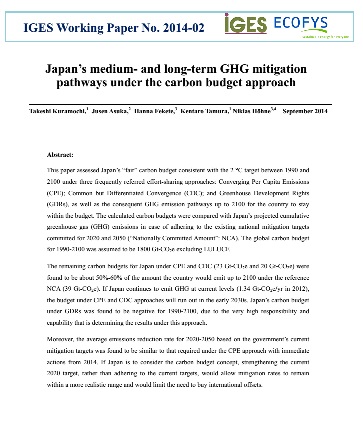The enhanced transparency framework (ETF) under Article 13 of the Paris Agreement (PA) builds on and enhances the existing transparency arrangements under the UN Convention on Climate Change (UNFCCC). The objective of this paper is to identify to what extent the existing reporting of greenhouse gas (GHG) inventories and mitigation actions by...
- Clear all
- Language: (-) English
- Type: (-) Discussion Paper
- Research Unit: (-) Climate and Energy
- Research Unit: (-) Kitakyushu Urban Centre
Results 11 - 20 of 74 (Sorted by date)
This paper provides some background information on coal industry transition that has occurred recently in China, and shows prospects for better transition management with a focus on employment. Using statistical data and scenario analysis results provided in existing literature, changes in coal consumption, production and international trade in...
The Article 6 of the Paris Agreement lays the groundwork for the operation of carbon market after 2020 by providing room for top-down and bottom-up approaches. Linkages between these mechanisms should be promoted to fully enable the potential of market mechanism to contribute to climate mitigation. Although the accounting method toward Nationally...
This papers informs the current progress and lessons from the Joint Crediting Mechanism (JCM) and how they will contribute to the efforts in climate mitigation, especially Post-2020 to achieve the Nationally Determined Contributions (NDCs) in the context of Article 6 of the Paris Agreement. Upon the analysis of IGES researchers, this report offer...
Based on the current status of the JCM as a scheme, the working paper discusses how it will contribute to realising additional greenhouse gas emissions reductions. The JCM that the Government of Japan advances jointly with partnering developing country governments is a mechanism for implementing projects that deliver greenhouse gas emissions...
This study conducted a comparative assessment of 48 greenhouse gas (GHG) emissions reduction scenarios for 2030 reported in seven studies published since 2011 and based on bottom-up energy system analyses. This study conducted two sets of analyses. First, the scenarios were categorized into four mitigation effort levels and assessed the value...
This paper presents the experience of Kitakyushu City, one of the environmental model cities in Japan, in achieving an efficient and closed-loop management of material resources, reducing the amount of waste produced and to be landfilled. Based on the national legislation, Kitakyushu City has developed its first Basic Plan for Municipal Solid Waste...
Key messages: 1. Technological absorptive capacity (consisting of the factors of general governance and business climate, basic technological literacy, access to finance, and technologically proactive policies) is the key determinant of successful technology transfer. Access to finance is one necessary but insufficient condition for technology...
This paper assessed Japan’s “fair” carbon budget consistent with the 2 °C target between 1990 and 2100 under three frequently referred effort-sharing approaches: Converging Per Capita Emissions (CPE); Common but Differentiated Convergence (CDC); and Greenhouse Development Rights (GDRs), as well as the consequent GHG emission pathways up to 2100 for...

